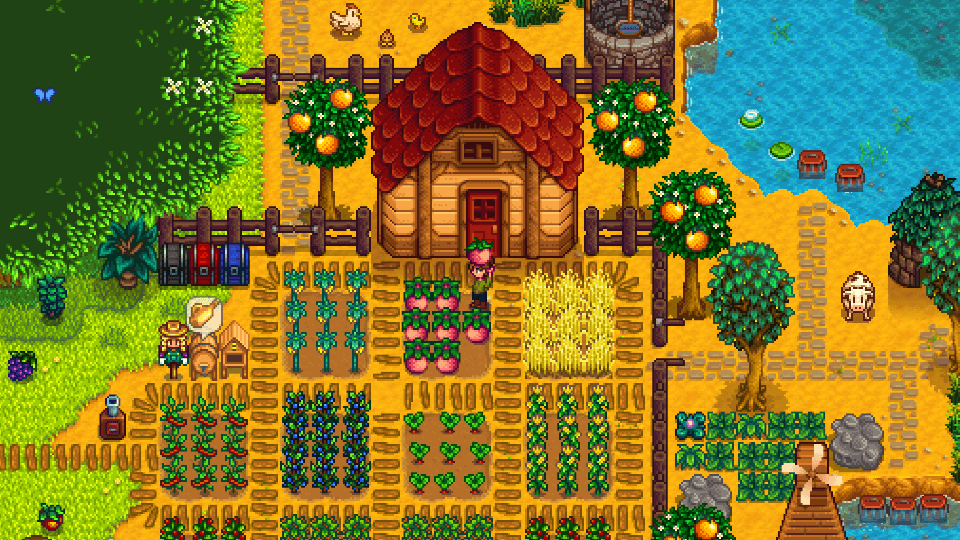One of my favorite games is Stardew Valley, a game where you become a farmer who inherits a plot of land from your grandfather in the titular valley. You spend the days building up your farm (by doing more conventional farm-related tasks like planting seeds and harvesting crops, and/or less conventional ones like mining for ores and slaying monsters) and interacting with other characters. (There is also a co-op mode that allows you to live on a farm with your friends, but I haven’t had the chance to explore it yet.)
While the initial aesthetics for Stardew Valley seems to be Fantasy (you play out your make-believe life as a farmer), I must say that the fun that keeps me reaching out for the game are Discovery and Narrative. I don’t keep playing the game because I keep wanting to be a farmer. I play because I am curious about what resources I can uncover next and what new recipes I can make (and how that would affect my farm) (Discovery). I play because I want to know what will happen to the NPCs and how my relationship with them would progress. Would Shane would overcome his alcohol addiction? Would Grandpa George listen to Dr. Harvey and take better care of himself? (Narrative)
For Discovery, dynamics include the ability to unlock different parts of town by fulfilling quests, and having to interact with different locations and people to unlock new recipes and objects. Mechanics that support these dynamics include a vast variety of ways to get new things in the game world, changing availability of these things depending on the season, weather, your skill level, your friendship level with other characters, etc. Another mechanic that supports Discovery is that once a recipe is unlocked, it shows you what is required to make the object, but not how to get those materials — motivating the player to continue exploring new territories. Stardew Valley also does a good job of managing the visibility of these recipes so that a new player is not immediately overwhelmed by all of them, especially the ones that would only be craftable at a higher skill level, which prevents frustration and the feeling of “this got too difficult, too fast” that detracts from fun.
For Narrative, dynamics include the ability to interact with different characters and progress on your storyline with each of them. Mechanics include a “heart meter” that tracks your friendship with each character, which could be filled up by giving them gifts and talking to them. Different characters have different likes and dislikes for gifts (giving a disliked gift reduces your heart meter instead), which the game intends for you to learn by trial and error (of course, there are always game guides). Another mechanics is character-specific events that show progress on your friendship with them. These events are triggered by having the heart meter at a certain level and entering a specific area. These mechanics also foster the fun of Discovery.
(Some players of Stardew Valley also enjoy the game for the aesthetics of Expression. Dynamics that support this include the ability to customize the player’s farm based on their preference. Mechanics include terraforming your farm (though not to the level of Animal Crossing) and choosing what structures and what plants to put on your farm. While I haven’t progressed to this part of my experience with the game yet, I think I potentially would in the future!)



